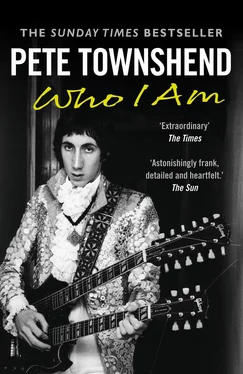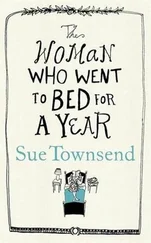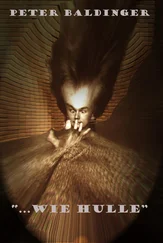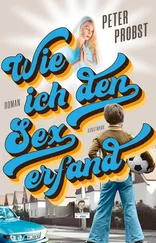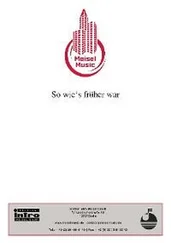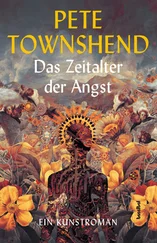***
The holiday camp was a peculiarly British institution – a working-class destination for a summer week of revelry that often included entertainment in the form of a band like the Squadronaires. The one-family-per-hut layout of the camps didn’t seem ideally suited to illicit sexual liaisons. But if, instead of a family in one of these huts, you imagine a small group of young men in one, and young women in another, you begin to understand the possibilities.
There was an egalitarian feeling about holiday camps, but I always felt a little superior to the ordinary folk rotating through. After all, I was with the band, and I was there for the whole summer, sometimes as long as sixteen weeks. From behind the stage curtain I discovered the magic of capturing the campers’ attention. I grew up with a feel for what entertains people, and saw the price this sometimes demanded. As a stunt to amuse the camping plebs, each afternoon at two o’clock Dad was pushed from the highest board into the swimming pool below, fully dressed in his band uniform. Emerging from the water still playing his old clarinet, he pretended to be sad, defeated. As a child I felt this rather too deeply. My shining Dad is humiliated, I used to think, so you camping plebs can get a laugh.
I learned to set myself apart from those ordinary folk, the customers who indirectly paid for our keep. To this day when I go to a concert in which I’m not performing I always feel a little lost. And I always think of my dad.
In September 1949, aged four, I attended Silverdale Nursery in Birch Grove, Acton, which probably appealed to Mum because she thought I looked cute in the school uniform, a red blazer and hat. Mum herself was naturally glamorous, and when clothes rationing ended after the war Mum outfitted herself like a Hollywood film star. Her in-laws disapproved. Why was she spending Dad’s hard-earned money on clothes and sending me to private school when she should have been pushing a pram?
I was happy, though. Whitehall Gardens was one of a series of streets overrun with little boys my own age. Our gang was led by my best friend who we all called Jimpy, after a character with a similar quiff in a popular Daily Mirror cartoon. Like all kids, we played football, cricket, hide-and-seek and cowboys and Indians – our favourite game. War games were limited to toy soldiers or model vehicles: the real thing was still too raw a memory.
Our fantasies were inspired by films we saw on Saturday matinées: Roy Rogers, Hopalong Cassidy, Flash Gordon, The Three Stooges, Charlie Chaplin, Laurel and Hardy, Looney Tunes , Disney cartoons and the rest. Laurel and Hardy were the funniest people on the planet. Chaplin seemed out of date to me, but then practically all the films we saw had been made before the war.
Once we got out of the house we could do pretty much what we liked. We sneaked under fences, onto railway sidings, scrumped apples from trees in people’s gardens, threw stones at ducks, opened any garage door left unlocked (cars were a great curiosity), and followed the milkman and his horse-drawn cart all the way to Gunnersbury Park, a round trip of about ten miles.
Jimpy and I both had tricycles, and one day, still only four, we both rode mine to the park to attempt a new downhill duo speed record on the steep path in front of the manor house. I stood on the back axle and Jimpy steered. The bike became uncontrollable at high velocity so we could only go straight ahead – crashing right into a raised brick planter at the foot of the hill. We ended up with our faces in the soil, shocked and bloody. The bike was so badly bent we couldn’t ride it back home. My nosebleed lasted two days.
***
In 1950, when I turned five, I didn’t go to the local free state junior school with my pals. Mum, still thinking I looked cute in uniform, sent me to the private Beacon House School, two-thirds of a mile from our home. I knew none of the children there, remember no one I met there and hated almost every minute of it.
The school occupied a single-family house, and assembly was held in a small back room into which we marched each morning singing ‘Onward Christian Soldiers’ like a bunch of brainwashed Chinese Communists. After an inedible lunch we were expected to nap at our desks for fifteen minutes. If we moved a muscle we were scolded; further fidgeting could lead to ruler slaps, or worse. I was caned several times, and whacked with the teacher’s rubber-soled slipper.
On one occasion I was so hurt and humiliated that I complained to my parents. They spoke to the headmistress at the school, who responded by singling me out for especially cruel treatment. Now I wasn’t even allowed to go to the toilet during the day, and I sometimes helplessly soiled myself on the long walk home from school. Afraid of even worse retribution from the school, I didn’t say another word about it to my parents. I went to Jimpy’s and received the sympathy – and fresh underpants – that I couldn’t find at home.
Around this time Mum started taking me to ballet lessons. I walked into a room and saw twenty toe-twinkling girls in tutus, giggling at me. I was one of only a few boys in the group. One day, after I misbehaved, the teacher pulled down my tights, bent me over a bathtub and spanked me while the girls gathered excitedly around the bathroom door.
Perhaps perversely, I enjoyed ballet classes. I am almost a dancer today because of them. Although even now, in my sixties, I am prone to slouching like an adolescent – indeed a photograph of me as a young man is used in a book about the Alexander Technique as an example of ‘post-adolescent collapse’ – I can move well on my feet, and a lot of my stagecraft is rooted in what I learned in those first few ballet classes. But Dad voiced his uneasiness at Mum taking me, so she stopped.
Towards the end of the Squadronaires’ summer touring season, the band’s busiest period, Mum got a phone call from Rosie Bradley, a good friend of my grandmother Denny’s brother, my Great Uncle Tom. She lived in Birchington, on the corner opposite Denny’s bungalow, and had been passing increasingly troubling news of Denny on to Mum.
During the summer of 1951 Denny was acting in a bizarre way and Rosie couldn’t tell how much of it was due to menopause. Mr Buss, Denny’s wealthy lover, had responded by sending money. Rosie thought Mum should go down and see to her. Rosie described a recent delivery Denny had received, prompting her to call over the road, ‘Rosie, Rosie! Come and have a look at this!’ In the boxes were four evening dresses and two fur coats, yet Denny was still walking around the streets in a dressing gown in the middle of the night. Rosie described Mum’s mother’s behaviour as ‘quite bonkers’.
After contacting my parents, Rosie persuaded Mr Buss to rent a two-bedroom flat for Denny above a stationer’s shop in Station Road, Westgate. Still, Mum worried. ‘Cliff,’ she said to Dad, ‘I think she’s going batty. Do you think perhaps Pete could go down there? He could go to that little school, St Saviours. That might sort it all out.’ And this, strange as it may seem, is how I got sent to live with my grandmother in Westgate, and descended into the darkest part of my life.
Denny’s domestic notions were downright Victorian. She ordered her own day, and mine, with military precision. We woke up before six and had breakfast, toast for her and cornflakes and tea for me – unless I’d done something wrong; her favourite punishment was denying me food. She granted me affection only when I was silent, perfectly behaved, utterly compliant and freshly washed – which is to say, never. She was a perfect wicked witch, even occasionally threatening me with gypsy curses. What had been in my parents’ minds when they chose to send me to live with her?
Читать дальше
